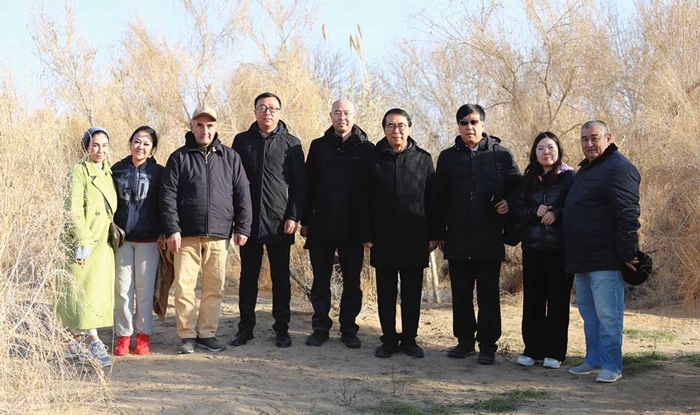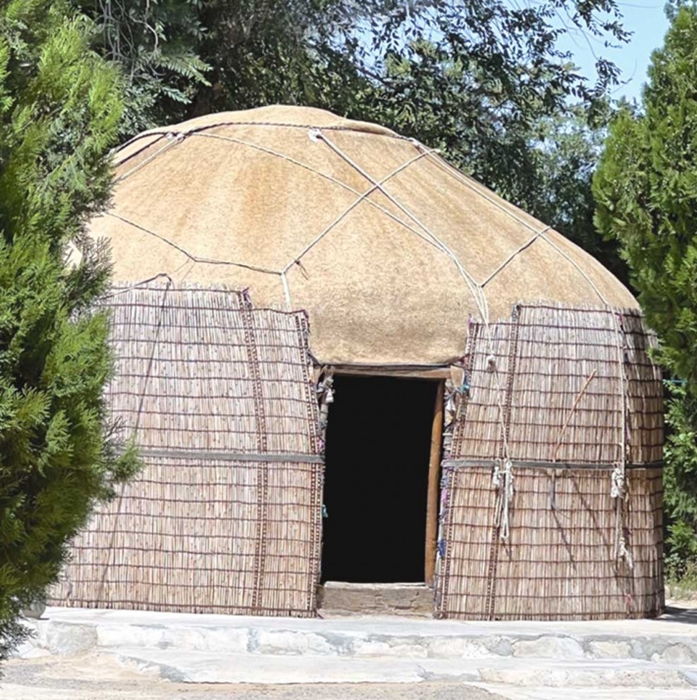Specialists from the Xinjiang Institute of Ecology and Geography and its Green Development Research Center for the Great Silk Road, as well as the Institute of Geology and Geophysics affiliated with the Chinese Academy of Sciences, other scientific institutions of the Chinese Academy of Sciences visited Turkmenistan in late December.
They had meetings with Turkmen colleagues from the Ministry of Environmental Protection and the State Committee of Water Resources, including the National Institute of Deserts, Flora and Fauna, the newspaper “Neutral Turkmenistan” reports.
As part of their visit to Turkmenistan, Chinese scientists traveled to the urban-type settlement of Bokurdak, located among the high sand dunes of the Karakum Desert, 91 km north of Ashgabat along the Ashgabat-Dashoguz highway. The official history of the village is more than a hundred years old.
The Chinese team was taken on a trip deep into the desert, where the dunes can reach heights of up to 50 meters, to inspect the vegetation, which includes long-term plantings of white and black saxaul on the sandy slopes closest to the village to protect buildings.
During the trip to Bokurdak, a field exchange of views took place. Members of the Chinese delegation – Director General of the Xinjiang Institute of Ecology and Geography of the Chinese Academy of Sciences, Doctor of Sciences, Prof. Zhang Yuanming, as well as President of the Foundation of the Alliance of International Scientific Organizations, Honorary President of the Academic Department of the CAS, a leading scientist in nanoscience of the Institute of Chemistry Prof.Bai Chunli highly appreciated the potential of Turkmen desert science, expressed interest in scientific partnership to improve efficiency combating desertification, land degradation, and biodiversity conservation.
The sides discussed the possibility of improving professional training in master’s degree programs through joint field surveys, the implementation of joint environmental and scientific and technical programs in the field of Aral and climate issues, ensuring the sustainable development of Central Asian countries, China and other neighboring countries.
One of the important directions is the study of the functioning of ecosystems in arid and semi-arid territories against the background of climate change with the involvement of partner research institutes of China and Turkmenistan.
The guests from China got acquainted with the life of the villagers, stayed in a felt yurt, and tasted the national cuisine. They had a meat pie called ishlekli, with sliced mutton filling. This meal is cooked in clean, hot Karakum sand that is periodically topped with coals.
A group of scientists also visited local meteorological station, near the site of which there are thickets of young fruiting pistachios.
Exploring the diversity of vegetation within the village, the scientists noted the beneficial continuity of planting along with expanding housing construction, as well as plants that can acclimatize to the harsh weather and climatic conditions of the Karakum desert. ///nCa, 8 January 2024

